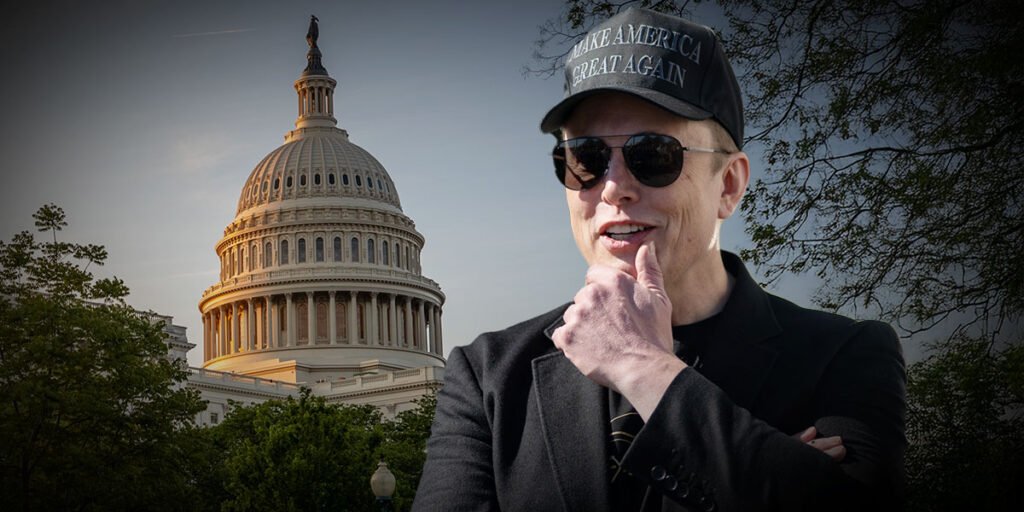
Elon Musk has decided to focus on Doge full-time, and there’s been a lot of discussion around whether Doge has succeeded. Personally, I think it represents a significant effort to challenge the existing culture of spending in Washington. Doge isn’t likely to address the massive $2 trillion spending on its own.
Discretionary federal spending is the part approved annually by Congress, which for 2024 is set at $1.8 trillion. The rest, about $5 trillion, is mainly going towards interest on entitlement programs and the national debt. To make any meaningful cuts, only Congress has the authority.
I gathered that Musk’s $2 trillion number reflected potential savings to be identified, which isn’t just a proposition from Doge. Senator Rand Paul has highlighted wasteful expenditures in his yearly Festivus report, pegging it at $1 trillion for 2024. Previously, Senator William Proxmire consistently awarded what he termed the Golden Fleece to wasteful programs.
Doge’s contributions to federal spending management can be summarized in two key areas. Firstly, it employs AI to assess how our funds are mismanaged. The sheer size of the federal government can make waste seem insurmountable.
If you’re lucky, you might receive a report from the Government Accountability Office focusing on one specific program. For instance, scams related to pandemic spending have siphoned off about $200 billion. Leveraging AI to analyze federal databases could really level the playing field between the everyday citizen and entrenched bureaucrats. This new insight offers financial conservatives like Senator Paul and Representative Thomas Massey some formidable tools.
To gauge whether anyone will act on these insights, it’s important to look at how spending power operates within a representative democracy. We should consider political balance, which refers to the outcomes of trying to reconcile spending with the pressures against it.
Representatives will likely garner support from voters and campaign donors by spending money. People tend to appreciate “free” offerings, and in many ways, Congress acts like Santa Claus with our tax dollars.
Raising taxes can stir significant opposition because, let’s face it, nobody enjoys taxes. Some representatives face the challenge of promoting spending without taxation, leading to a sort of democratic risk that could spiral into financial ruin. Back in the 1830s, several states found themselves in dire financial straits, similar to the trend of cities going bankrupt post-Civil War.
In political terms, spending tends to befriend the populace, while taxation often becomes the scapegoat. So why does spending come out on top? Well, typically, the benefits of spending accrue to smaller, more cohesive groups who understand their advantages—like elderly citizens with Social Security and Medicare. On the other hand, taxes impact a much broader audience.
It’s also challenging to pinpoint who is ultimately bearing the burden of certain taxes, particularly corporate ones. Many think wealthy individuals cover corporate tax burdens, but that might not be entirely accurate.
Spending a million dollars creates more direct political rewards than the political cost associated with taxing a million dollars. The benefits of spending can be distributed among council members and their families, making them less inclined to cut budgets.
Changing the status quo on spending does require disrupting that political equilibrium. But how exactly do we accomplish that? Honestly, I’m not sure there’s a one-size-fits-all solution. Javier Milei has shown that drastic measures can work in Argentina. Musk and Doge have also demonstrated some unconventional approaches that appear to be gaining traction.
Entities like USAID and the Department of Education are virtually shut down. Doge has reportedly hired 75,000 federal employees while thousands of probation workers have been laid off. They claim to have saved $160 billion, although Congress or the courts could reverse those cuts. Some of the cuts made by Doge targeted programs exploited to push specific agendas.
For instance, it has supported progressive NGOs, hindered new factory developments, and actively engaged in lawsuits to enforce progressive cultural norms. Universities have faced scrutiny for the costs associated with administrative overhead related to NIH Research Grants.
Looking ahead, Doge will need to present an annual retirement bill to Congress, which should ultimately lead to spending reductions. There’s potential to return some of those savings—maybe around 20%—back to taxpayers. While fiscal conservatives may argue that any cuts should be funneled into reducing deficits, achieving budgetary balance can involve gradual increases. The Doge Recision Bill and refunds could establish newfound support for spending reductions.
With Uncle Sam spending $7 trillion annually and debt exceeding $36 trillion, the political climate seems to favor spending over financial conservation. Musk and Doge should be acknowledged for their crucial attempts to shake up the spending culture in Washington.
















